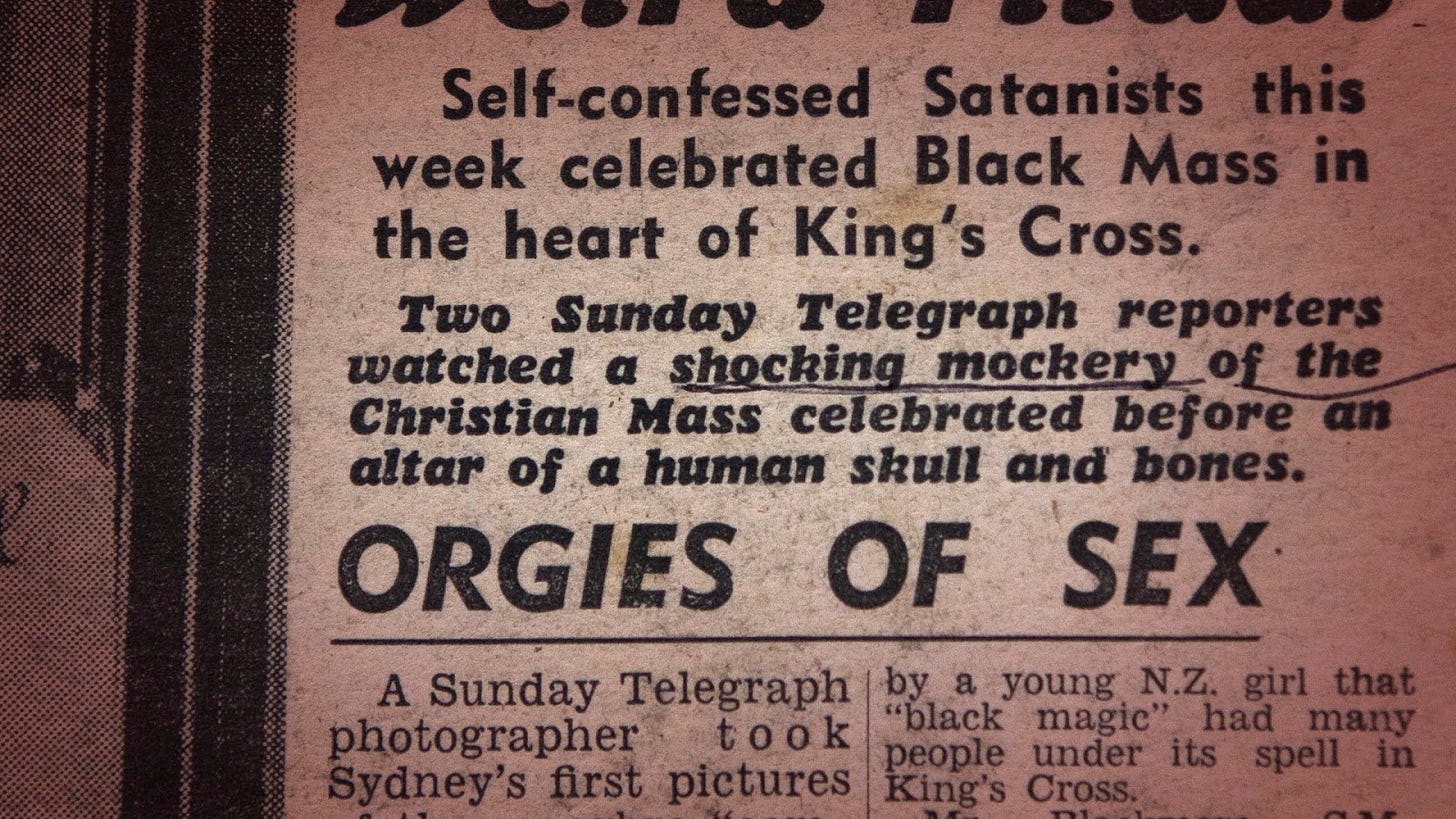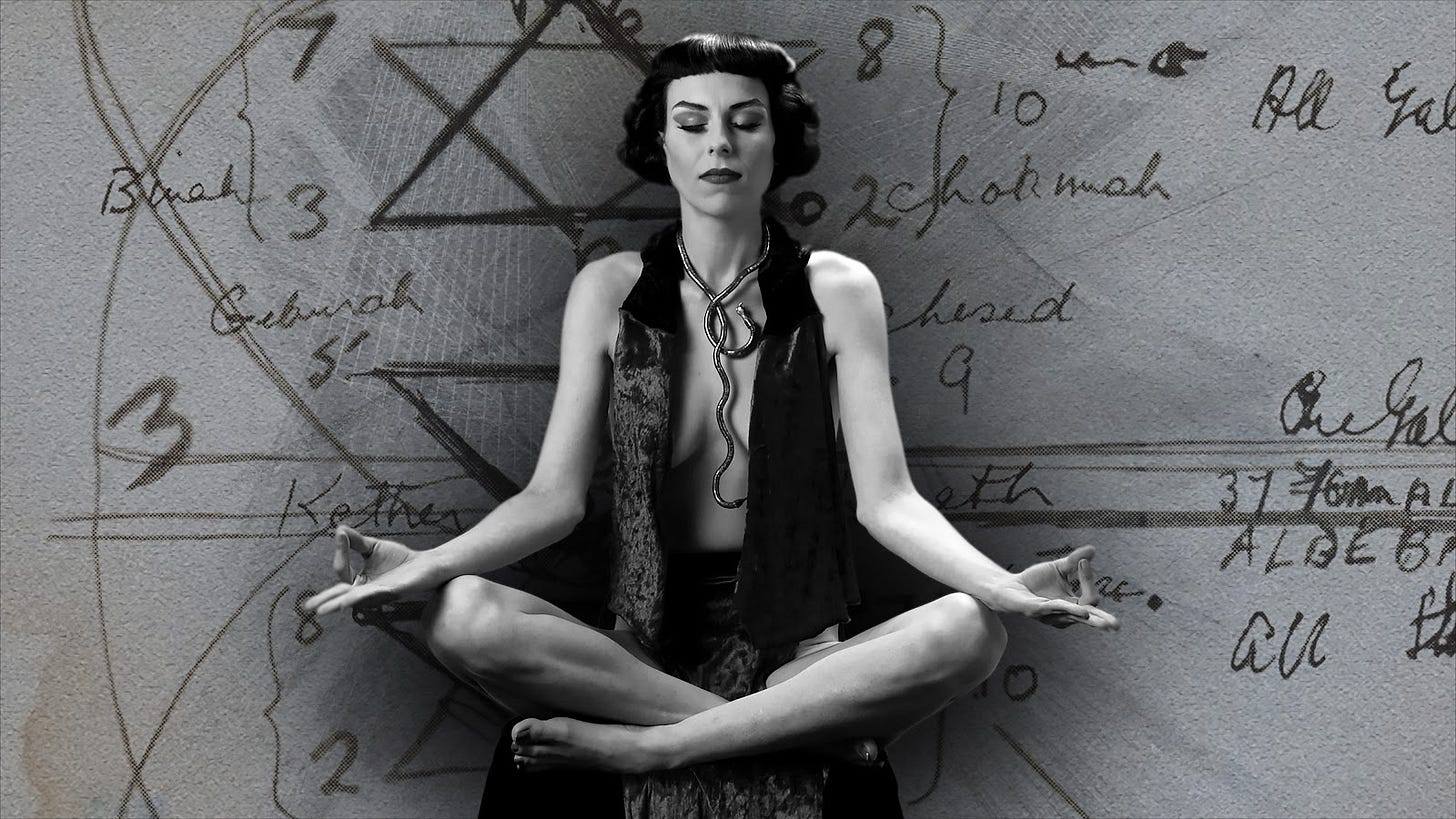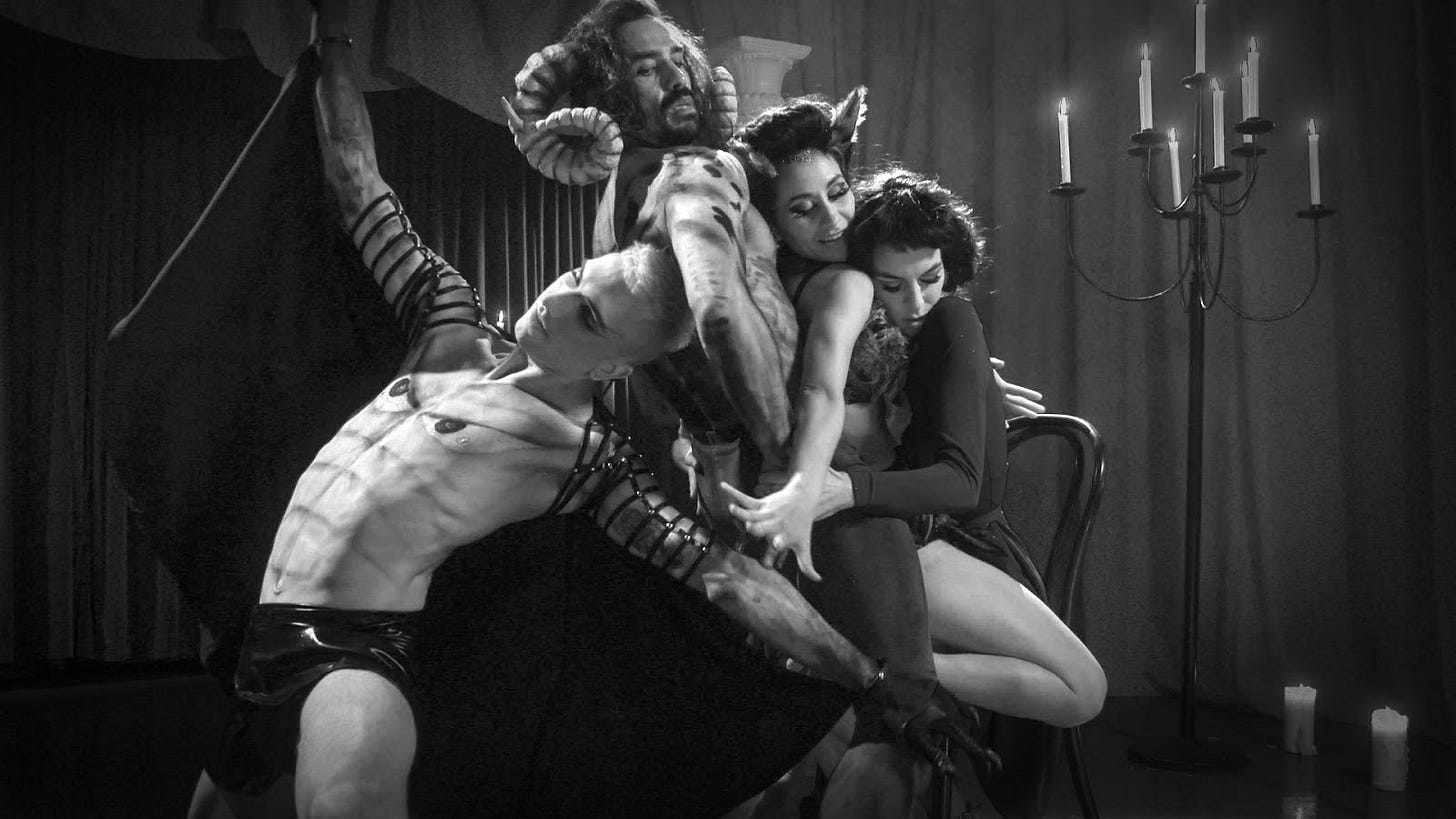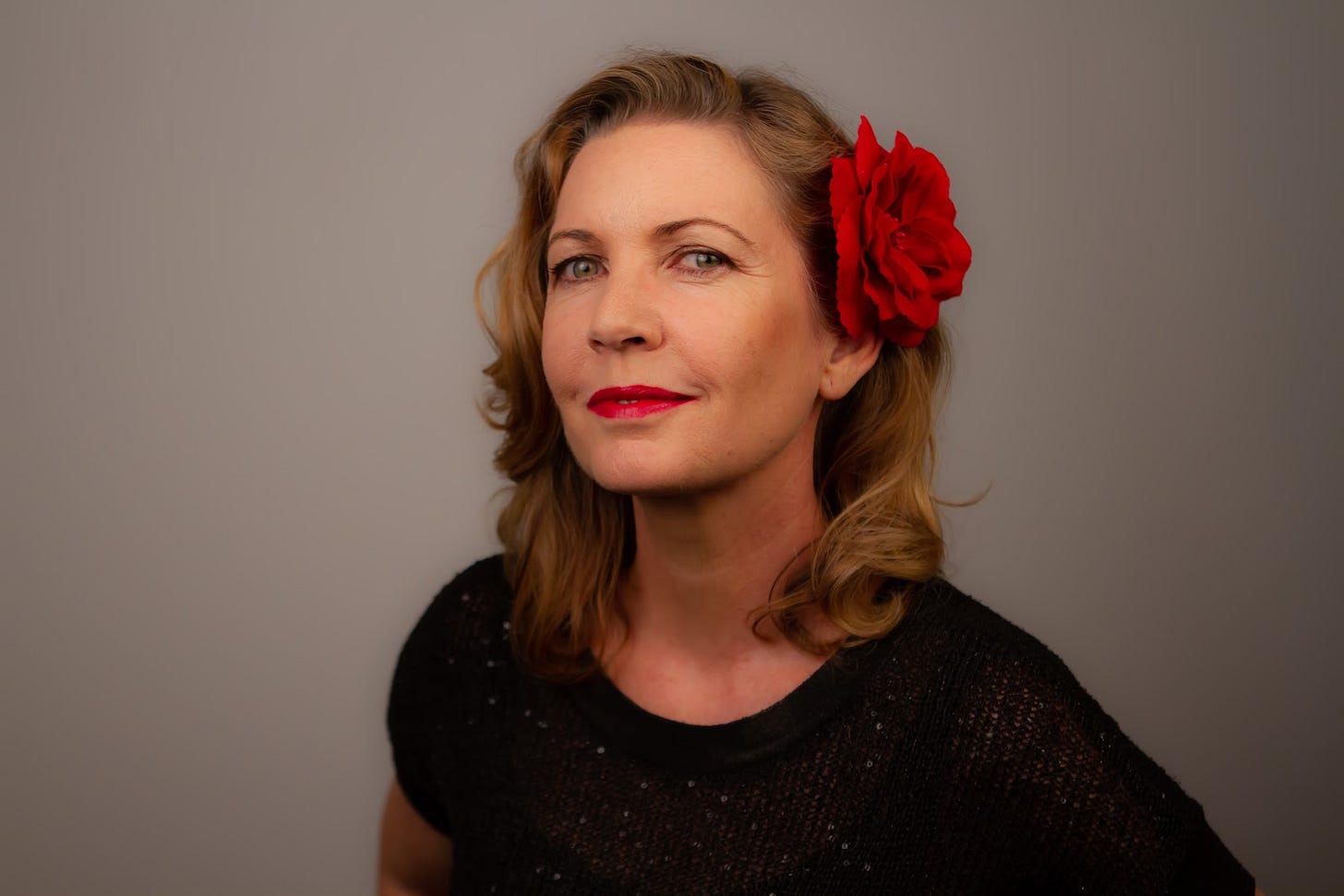Blood Art Sex Magic
Orgies, obscene art, satanic rituals... artist Rosaleen Norton’s alleged Friday night activities raised more than a few eyebrows in 1950s Australia. But why was she so reviled? Was she really a witch? And will we ever think of C.S. Lewis in the same way again?!
We’ve been called witches ourselves. Mostly because we disagreed with a man while happening to stand next to each other, rather than because of our terrifying sexuality, though Rosaleen Norton was a very different type of witch. An artist with a fascination for the erotic and the spiritual, she was called out publicly for obscenity and arrested multiple times, the relentless scandals eventually leading to the downfall of her high society lover. It’s a hell of a story - and it’s now being told on film.
The Witch of King’s Cross looks at the woman and art behind the scandal - both of which were almost eclipsed by the media frenzy. The film weaves stylised drama and erotic dancers with never-before-seen artworks, diaries and scrapbooks. And frankly? It’s fucking excellent.
Well obviously we love a witch. So in lieu of arranging our own sex orgies - currently on hold thanks to Covid - we chatted to Sonia Bible, the award-winning director bringing Rosaleen and her art back into the public eye.
HEX: We’d not heard of Rosaleen before seeing the film - how did you discover her?
Sonia: I discovered Rosaleen Norton’s story when I was making my first film, ‘Recipe For Murder', about women who killed their husbands with rat poison in Sydney in the 1950s. I was researching tabloid newspapers from the time, and articles about Rosaleen kept popping up. I was interested in the story of this rebellious woman, the media’s portrayal of Rosaleen, and society’s fear around what she represented.
Why were people so quick to label her a witch?
I think the fear of witches is about a fear of female power, whether that is sexual, political or other. Labelling powerful women as witches is a way of trying to diminish women with power as something supernatural or unnatural.
Firebird by Rosaleen Norton (Black Jelly Films, Courtesy Burgess Family)
Later in life Rosaleen deliberately courted media attention - writing articles about being a witch, being photographed in a black pointy hat, and so on. Do you believe she was a 'witch' in the traditional sense?
I think it was something Rosaleen grew into. In her youth she was a Pantheist, but later in life she definitely practised her own form of witchcraft and was the high priestess of her own coven. She started practising trances and astral experiences when she was quite young, about 23. She wrote very descriptive accounts of her experiences, and exchanged letters with C.S. Lewis and others about her astral experiences.
The film is very erotic, particularly because of the sequences with dancers - gods and goddesses with sexy, writhing bodies. What inspired you to take that approach?
I wanted to visualize Rosaleen’s inner world and spiritual beliefs. I felt strongly that the film should be erotic, because it was actually Norton’s sexuality that the authorities found so threatening. I was compelled to take risks with the creative direction of the film, and casting dancers as Pan, Lilith and Lucifer to represent Norton’s trances and experiences in sex magic seemed like an exciting idea. I wanted to make a documentary that was an artwork within itself.
Are you hoping your film will have any effect on current attitudes in Australia to Rosaleen as an artist?
The publicity for the film in Australia has changed the narrative of the media’s attitude toward her art, but it’s too soon to know if the same can be said of the art establishment. I hope so in time. Because the film is being embraced in Europe, the UK and the USA, attitudes may change, but at the moment they are saying, ‘that is not for us - that does not reflect us’.
How do you feel towards Rosaleen, after having made this film about her?
I don’t think that I choose a person to make a film about - that person chooses me. But I was struck by the bravery and sheer determination of Rosaleen. I talked to as many people as possible who actually knew her, and having Rosaleen’s scrapbooks and diaries really helped me understand her character. She was a very witty woman: wild, creative, decades ahead of her time. She never gave up her artistic pursuits, no matter how hard the authorities made it. Rosaleen has taught me to be strong and not give a shit about what other people think of my work.
The Witch of Kings Cross is available worldwide on Amazon, iTunes, Vimeo and GooglePlay. Watch the trailer here (we recommend you do so immediately).











